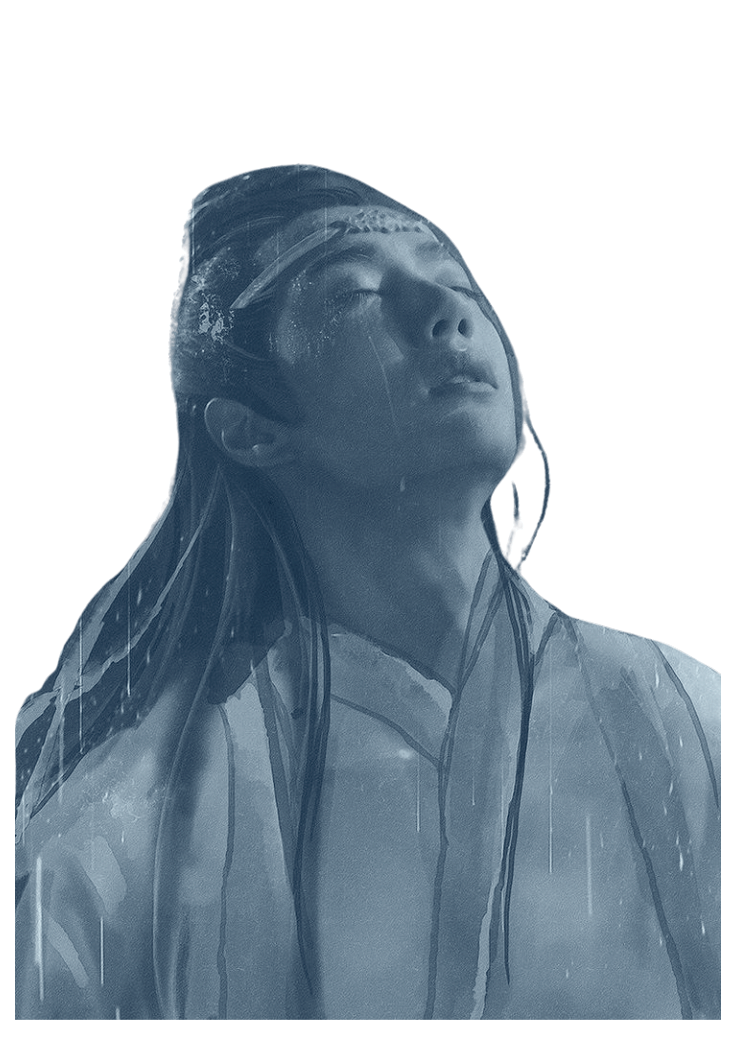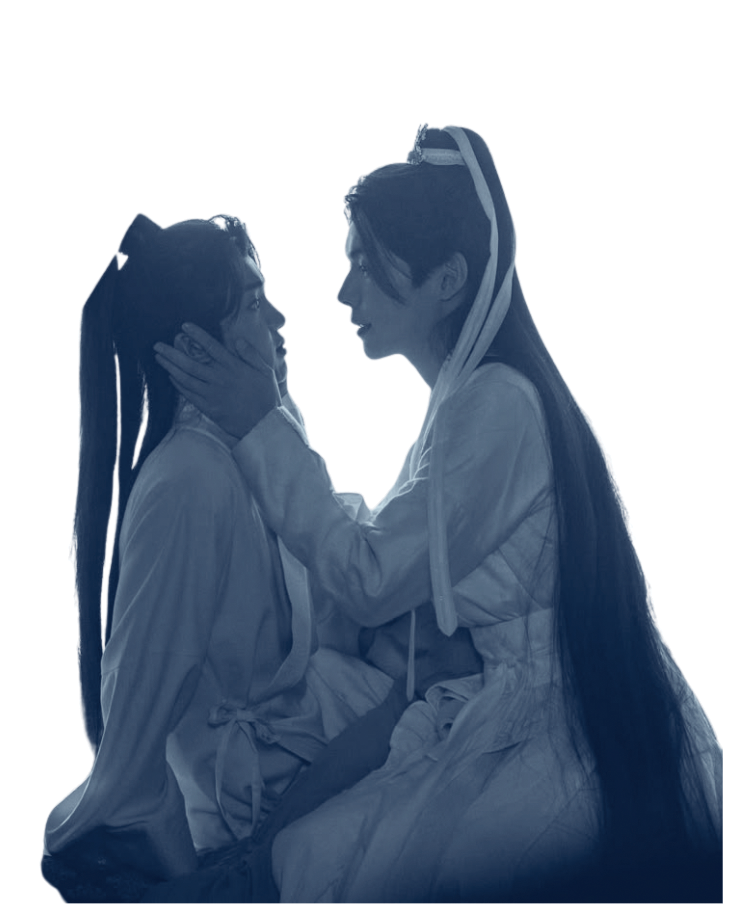
Faltering fantasy
Boys’ Love is taking the world by storm but forgetting the queer community.
by William Tong
When The Untamed started streaming in 2019, I immediately hopped on the bandwagon, eager to devour the latest and hottest Chinese drama. I expected all the staples of a mediocre Xianxia series: fight scenes with more twirling than actual combat, poorly CGI-ed monsters and that one lake at Hengdian World Studios that seems to show up in every Chinese TV series after 2014.
The show prominently featured those corny yet nostalgic cinematographic choices. But the lingering looks and flirty banter between the two main characters, Wei Ying and Lan Zhan, as well as the absence of a female lead, surprised me. When Lan Zhan strummed a love song for Wei Ying on his guqin after escaping death by demon turtle, I realized the story — shrouded in censorship-induced ambiguity — sketched out the gay Asian romance I had yearned to see for years.
While The Untamed signified an uplifting increase of queer representation in Asian media, there are oversights from creators that detract from the experience of consuming their works and perpetuate harmful perceptions of LGBTQ+ people. Insofar as stories depicting gay characters are meant to resonate with gay people — and it’s only fair that they are — creators need to more realistically and respectfully characterize queer Asian experiences.
Often grouped into the “Boys’ Love” (BL for short) genre, books, shows and movies depicting gay male romance have exploded in popularity throughout many East and Southeast Asian countries in recent years. 2Gether, a Thai drama that started airing in February 2020, surpassed 100 million views on the streaming service Line TV by April that year. Semantic Error, a Korean BL, had some of the highest viewership on WATCHA following its release in February 2022, according to Weverse Magazine. The Korean streaming service had millions of users in 2022, Screen Daily reported.
The Untamed amassed billions of views on Tencent Video within two years of its release. It also began streaming on Western platforms like Netflix. The online novel from which The Untamed was adapted, Mo Dao Zu Shi (Grandmaster of Demonic Cultivation), also garnered huge popularity in China and abroad before the live-action release. The increase in both unambiguous and suggestive BL media doesn’t seem to have stalled. They may even have made it onto the big screen — some audiences hypothesized strong romantic tension between Ne Zha and Ao Bing in this year’s Ne Zha 2, which became the highest grossing animated film ever in February.
Historically, BL has mainly catered to straight women. It’s provided an outlet of fantastical escape from mostly rigid, patriarchal societies, according to China Media Research in 2021.
Gay people are looking for a similar kind of escape in BL. It’s comforting to see that someone believes in the reality of queerness enough to cultivate love, heartbreak, joy and tragedy from it in entertainment media. But, there’s a fine line between feel-good portrayals and unrealistic mirages of LGBTQ+ experiences. Sometimes, in catering to their straight women audience, BL creators find themselves on the wrong side of that divide.
The romanticization of dubious consent in sexual situations is a major mischaracterization that stems from this balancing act. In 2016’s Addicted, one of China’s earliest BL dramas, one of the main characters is implied to have frequently assaulted the other lead in a variety of intimate situations. Another example of this pattern manifested in Meet You at the Blossom, a C-drama from 2024 that aired in Thailand. The series’ creators paired tender music and lovey-dovey dialogue with intimate scenes where one or both main characters were under the influence. In cultures where the perceived sexual deviance of queer people already makes general society wary of LGBTQ+ people, those callous depictions of dubiously consensual intimacy only exacerbated harmful stereotypes. The trivial and one-dimensional way these shows portray consent and power dynamics leaves a suffocating feeling in viewers’ minds.
Even the seemingly mundane plot and semantic choices matter. Many shows will typecast one male lead as the husband and the other as the wife, solidifying the impression that real queer couples exist in the same gender framework, which is simply not true. These inaccuracies allow people to disregard the existence of non-straightness by foisting a heterosexual box on fictional gay relationships.
Don’t get me wrong — future BLs shouldn’t show LGBTQ+ experiences as only smooth sailing. I actually wish books and shows would incorporate culturally and historically accurate homophobia into their storylines. Even though Mo Xiang Tong Xiu, the author of Mo Dao Zu Shi, sets her novels in fictional timelines loosely based on dynastic China, fantasy isn’t an excuse to throw away realism. When all major sects persecuted Wei Ying for defending the helpless but not for his romance with Lan Zhan, it created a frustrating cognitive dissonance I tried to shove away.
Some shows, like the 2023 Thai drama Moonlight Chicken, do a better job. In the last few episodes, the main character’s sister berates her son for being gay and blames it on his uncle. It takes effort for them to negotiate a shaky understanding, but that’s what queerness in real life often requires.
Gay representation in East and Southeast Asian entertainment has overcome mountainous hurdles to reach its current state. In some places, it continues to face massive challenges — rumors suggest Immortality and Eternal Faith, two C-dramas that have been in production for years, are perpetually blocked by Chinese government censors.
Still, for BL works to satisfy all their audiences and meaningfully uplift LGBTQ+ visibility, creators have to dispense with inaccurate stereotypes and engage with the lived challenges of gay Asian people. If nothing else, The Untamed gave me hope that someday soon, the BL world can capture the depth and nuance it’s supposed to represent.
“It’s more satisfying to see queer characters carve out a loving home for themselves than authors unrealistically erase prejudice from their stories to avoid controversy.”








